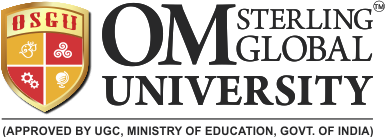The healthcare landscape thrives on a delicate balance. On the front lines, dedicated paramedical professionals deliver crucial patient care. Behind the scenes, health administrators orchestrate the complex machinery that keeps these facilities running smoothly. While seemingly distinct, these two areas hold a hidden potential: the synergy created by combining paramedical skills with health administration expertise. This unique blend can unlock a fulfilling and impactful career path, offering a holistic perspective on the healthcare system.
From the Bedside to the Boardroom: Bridging the Gap
Paramedical professionals possess a wealth of practical skills honed through rigorous training. They understand the intricacies of patient care, the delicate balance of administering medication, and the emotional nuances of interacting with individuals in vulnerable states. This firsthand experience provides invaluable insight into the daily realities of delivering medical services.
Health administration, on the other hand, equips individuals with the business acumen and leadership skills necessary to navigate the complex world of healthcare management. They understand budgeting, staffing, and regulations, ensuring healthcare facilities operate efficiently and effectively. However, the challenge often lies in bridging the gap between administrative decisions and their impact on patient care. paramedical and health administration
The Power of Duality: How Paramedical Expertise Benefits Health Administration
For those with a background in paramedical professions, venturing into health administration unlocks a unique advantage. Their understanding of patient needs and workflows allows them to make informed decisions that directly impact the experience delivered. Here's how:
Enhanced Patient-Centric Approach: Decisions on resource allocation, staffing levels, and equipment procurement can be made with a deeper understanding of how they affect patient care. A former paramedic turned administrator, for example, can advocate for equipping ambulances with advanced monitoring equipment based on real-world scenarios.
Improved Staff Management: Having walked in the shoes of frontline healthcare workers, administrators with paramedical experience can foster a more empathetic and supportive work environment. They can create staffing schedules that consider workload demands and prioritize employee well-being, ultimately leading to a more productive and motivated workforce.
Streamlined Processes: Having witnessed the inefficiencies that can plague patient care, those with paramedical experience can identify bottlenecks in workflows and advocate for smoother processes. A former nurse administrator could, for instance, implement digital charting systems to streamline documentation and reduce paperwork burden on nurses.
Innovation with Practicality: Paramedical professionals are often at the forefront of technological advancements in patient care. When combined with administrative knowledge, this expertise can lead to the adoption of innovative solutions that are not just technologically sound but also practical for frontline healthcare workers to implement.
The Art of Leadership: Paramedical Skills Shape Effective Management
The skills honed during a paramedical career extend beyond technical knowledge. These professionals develop exceptional communication skills, learn to work effectively under pressure, and cultivate empathy in high-stress situations. These translate beautifully into strong leadership qualities crucial for effective health administration:
Effective Communication: Paramedical professionals are adept at communicating complex medical information to patients in a clear and concise manner. This skill translates to fostering open communication channels with staff, ensuring everyone is on the same page and understands organizational goals.
Decision-Making Under Pressure: Fast-paced environments and critical situations are the daily reality for paramedical professionals. This experience equips them with the ability to make quick and sound decisions under pressure, a vital skill for administrators dealing with unexpected challenges or budgetary constraints.
Building Trust and Teamwork: Patient care often relies on seamless teamwork between different medical professionals. Paramedical professionals inherently understand the importance of collaboration. This translates to fostering a strong team spirit within healthcare facilities and building trust with staff, leading to a more cohesive and efficient work environment.
Charting Your Course: Educational Pathways and Career Opportunities
This unique career path can be achieved in several ways. Some individuals might choose to pursue a paramedical profession first, gaining valuable experience before transitioning to health administration later. Earning an online or part-time bachelor's degree in health administration or a Master's in Healthcare Administration (MHA) can equip them with the necessary business and management skills.
Alternatively, some universities offer dual degree programs that combine paramedical training with health administration coursework. This option allows individuals to acquire both skillsets simultaneously, accelerating their entry into this specialized field.
Several career opportunities await those who bridge the gap between paramedical practice and health administration. Here are some examples:
Clinical Director: Overseeing patient care delivery while ensuring adherence to best practices and efficient resource utilization.
Director of Nursing: Leading nursing teams, managing budgets, and advocating for staff needs while maintaining high-quality patient care.
Emergency Medical Services (EMS) Manager: Utilizing paramedical knowledge to optimize emergency response protocols and manage EMS teams.
Healthcare Consultant: Providing expert advice to healthcare facilities based on a unique blend of clinical experience and administrative

